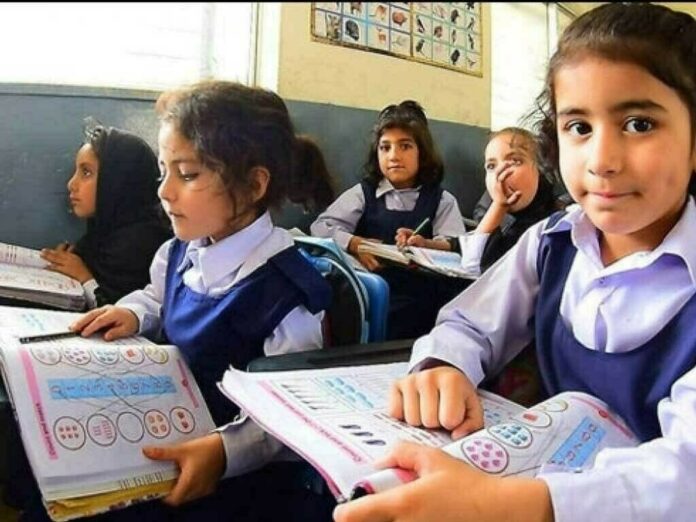The Sindh government has signed an agreement to set up 500 non-formal education centers under a public-private partnership to provide education opportunities for 15,000 out-of-school children from underprivileged areas. The initiative, led by Sindh’s Education Minister Syed Sardar Ali Shah, aims to help children complete their primary education within 30 months.
A formal agreement-signing ceremony was held in Karachi, attended by key education officials, partner organizations, and government representatives. Secretary of School Education & Literacy Department, Zahid Ali Abbasi, was the chief guest, alongside other notable attendees including Dr. Fauzia Khan, Chief Executive Advisor of Curriculum Wing & Additional Secretary, Rasool Bux Shah, Executive Director of STEDA, Abdul Jabbar Mari, Director of Literacy & Non-Formal Education (LNFE) Sindh, Mola Bux Shaikh, Director General of Monitoring & Evaluation, and Abid Gul, Deputy Chief Advisor of JICA.
During the ceremony, Secretary Zahid Ali Abbasi highlighted the significance of non-formal education in improving literacy rates. He stated that five districts with the lowest literacy rates—Jacobabad, Kashmore, Mirpurkhas, Tharparkar, and Umerkot—had been selected for the first phase. He also emphasized that Sindh is the first province in Pakistan to introduce a formal curriculum for non-formal education, reinforcing the government’s commitment to accessible learning.
Abbasi further stated that the initiative would complement the traditional education system by offering an alternative learning pathway. The project focuses on providing quality education to marginalized children, with a strong emphasis on ensuring higher participation rates for girls. He urged partner organizations to prioritize female students, addressing the gender gap in education.
Director of Literacy & Non-Formal Education Sindh, Abdul Jabbar Mari, elaborated on the structure of the initiative. Under the Accelerated Learning Program, children will complete their primary education within 30 months. Upon successful completion, students will be guided to enroll in elementary school (class 6), ensuring a smooth transition into mainstream education.
The project marks a significant milestone in the province’s efforts to enhance educational access and literacy rates. By integrating non-formal education with structured learning pathways, Sindh’s government aims to bridge educational disparities and provide underprivileged children with a brighter future.



